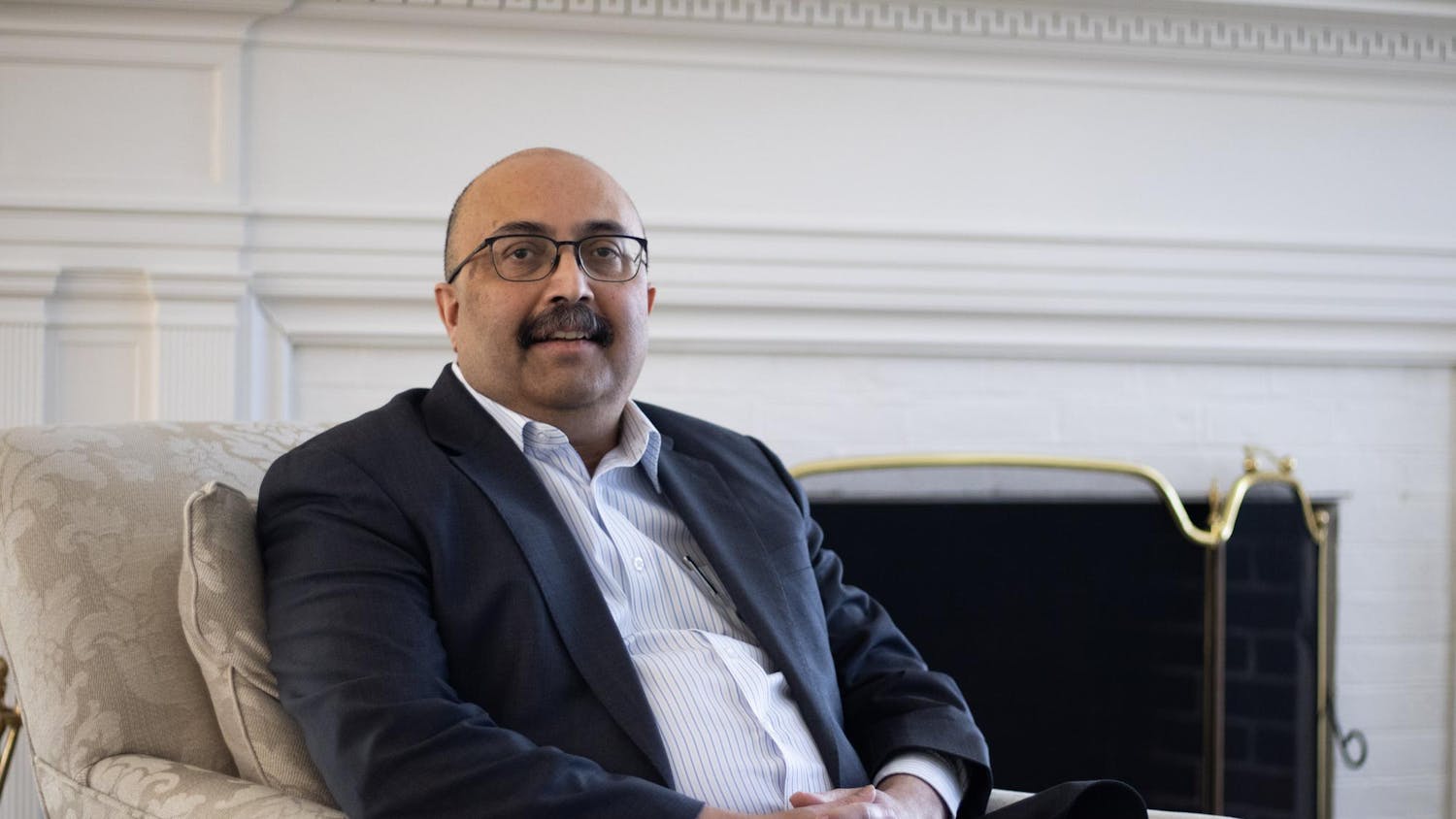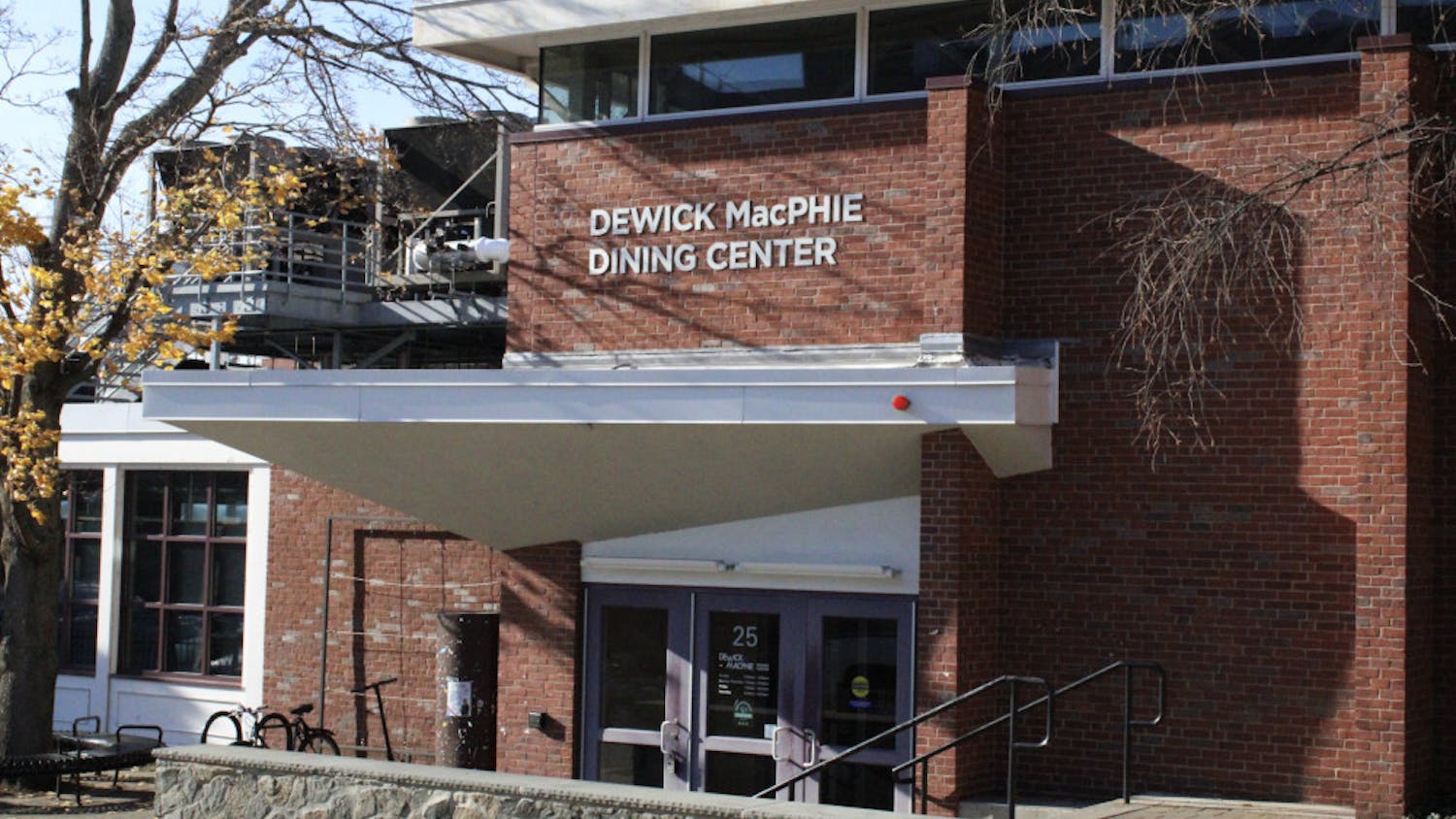Tufts’ Counseling and Mental Health Service (CMHS) partnered over the past year with BetterHelp and iHope Network, two services that provide remote telehealth counseling services, in an effort to increase students' access to mental health services, according to Executive Director of Health and Wellness Michelle Bowdler.
The university reminded students of the services in an Oct. 17 email, after previously announcing them in a June 13 email. BetterHelp is offered over text, live chat, phone and video conference, while iHope is available on video conference, according to CMHS' website.
Bowdler said that with traditional in-person counseling appointments, students may encounter difficulties that would decrease their interest or ability to seek care.
“When somebody is thinking about wanting therapy, one of the things that sometimes is a barrier is the counseling center has times available but it’s not the times a student can do it,” Bowdler said. “When people think about going off campus, or they’re referred off campus, one of the barriers for them is, ‘Well, it’s going to take me 20 minutes to walk to Davis Square,’ or ‘This person is in Cambridge and it’s only three miles away but I don’t want to pay for an Uber, and I can’t do that and pay a copay.’”
Telehealth allows for flexible timing and location of appointments, appealing to students with hectic schedules, Bowdler added.
“[BetterHelp and iHope] sometimes have people who have more off-hour availability,” Bowdler said. “[Students] can get online and there are many people to choose from, and they can look for [early or late appointments] ... They’re not spending 20 minutes going and 20 minutes going back. They don’t have the stress of having to get to their appointment; they don’t have to worry.”
Text and chat functions also allow students to enter the system and choose from potential therapists before committing, according to Bowdler.
Bowdler cited research showing that telehealth platforms BetterHelp and iHope, which focus on cognitive behavioral therapy (CBT), can be as effective or more effective than in-person therapy.
“What most counseling centers around the country are finding is adding therapists alone is not sufficient to keep up with demand,” Bowdler said. “So when you’re thinking about what’s needed on a college campus, you have to think about building community and additional resources as well.”
UnitedHealthcare StudentResources, which provides student health insurance for Tufts, added BetterHelp as a free benefit last spring, Bowdler said. Tufts has since partnered with iHope, a similar service that accepts major insurance plans, according to CMHS' website.
iHope bills students for the same copay amount as in-person appointments, and thus costs less than BetterHelp for students not under Tufts' student health insurance plan, according to Bowdler.
"For people who don't have the student insurance, BetterHelp was kind of expensive," Bowdler said. "With iHope, it was an alternative for people who didn't have student insurance. We wanted to have two options, one for people who had the student insurance and one for people who didn't ... so that we would have something for everybody."
Other Boston-area schools, like Harvard University and Brandeis University, have already adopted telehealth services with promising results, according to Bowdler.
The timing of the reminder email from CMHS was meant to coincide with midterms, upcoming finals and holidays, according to Jennifer Berrios, associate director of administration for Health and Wellness Services.
“Historically we know that midterms, finals and holidays are stressful times for students,” Berrios told the Daily in an email. “These are also times when we see increased demand for mental health services. We wanted to get the message out to students about alternative mental health services available in case they felt they need them.”
Bowdler said that CMHS intentionally chose to reach students via email to reach a wider audience.
“It occurred to me that just putting it on our website and just telling people who are already coming through our doors [wasn’t enough],” Bowdler said. “We thought maybe if we advertised it more widely more people would check it out. We just felt like it would be a tool that has a lot of advantages and very few disadvantages.”
Initial feedback from students has been positive, according to Director of CMHS Julie Ross.
“So far we have had a good response in terms of students, both graduate and undergraduate, using the services,” Ross told the Daily in an email. “We have gotten some good feedback from students who have utilized these options, even from some who were initially skeptical about Telehealth but were willing to give it a try! We have heard that students have been pleased with the effectiveness and convenience of the services.”
Telehealth platforms BetterHelp and iHope serve as one of many potential outlets for students seeking counseling or mental health care, Bowdler explained. In addition to telehealth options, CMHS has added new staff and group therapy sessions, while more local providers have been added to Tufts' student health insurance plan, according to Bowdler.
“There is a huge need for college students to reflect on themselves, to address issues at times in their lives that they may feel are causing them some kind of distress,” Bowdler said. “Looking inward and seeking help, in a number of different ways, is important. I hope that our campus community is a community where we look out for each other.”
The university reminded students of the services in an Oct. 17 email, after previously announcing them in a June 13 email. BetterHelp is offered over text, live chat, phone and video conference, while iHope is available on video conference, according to CMHS' website.
Bowdler said that with traditional in-person counseling appointments, students may encounter difficulties that would decrease their interest or ability to seek care.
“When somebody is thinking about wanting therapy, one of the things that sometimes is a barrier is the counseling center has times available but it’s not the times a student can do it,” Bowdler said. “When people think about going off campus, or they’re referred off campus, one of the barriers for them is, ‘Well, it’s going to take me 20 minutes to walk to Davis Square,’ or ‘This person is in Cambridge and it’s only three miles away but I don’t want to pay for an Uber, and I can’t do that and pay a copay.’”
Telehealth allows for flexible timing and location of appointments, appealing to students with hectic schedules, Bowdler added.
“[BetterHelp and iHope] sometimes have people who have more off-hour availability,” Bowdler said. “[Students] can get online and there are many people to choose from, and they can look for [early or late appointments] ... They’re not spending 20 minutes going and 20 minutes going back. They don’t have the stress of having to get to their appointment; they don’t have to worry.”
Text and chat functions also allow students to enter the system and choose from potential therapists before committing, according to Bowdler.
Bowdler cited research showing that telehealth platforms BetterHelp and iHope, which focus on cognitive behavioral therapy (CBT), can be as effective or more effective than in-person therapy.
“[iHope has] research that showed for CBT -- particularly with telehealth -- that it’s as good or better doing it online as doing it in person," Bowdler said.
Bowdler said that many colleges throughout the United States have responded to a growing demand for counseling services by introducing additional resources, including telehealth options. Bowdler added that telehealth services can offer students a longer course of treatment, compared to the short-term model of care that Tufts, like most other universities, provides.
“What most counseling centers around the country are finding is adding therapists alone is not sufficient to keep up with demand,” Bowdler said. “So when you’re thinking about what’s needed on a college campus, you have to think about building community and additional resources as well.”
UnitedHealthcare StudentResources, which provides student health insurance for Tufts, added BetterHelp as a free benefit last spring, Bowdler said. Tufts has since partnered with iHope, a similar service that accepts major insurance plans, according to CMHS' website.
iHope bills students for the same copay amount as in-person appointments, and thus costs less than BetterHelp for students not under Tufts' student health insurance plan, according to Bowdler.
"For people who don't have the student insurance, BetterHelp was kind of expensive," Bowdler said. "With iHope, it was an alternative for people who didn't have student insurance. We wanted to have two options, one for people who had the student insurance and one for people who didn't ... so that we would have something for everybody."
Other Boston-area schools, like Harvard University and Brandeis University, have already adopted telehealth services with promising results, according to Bowdler.
The timing of the reminder email from CMHS was meant to coincide with midterms, upcoming finals and holidays, according to Jennifer Berrios, associate director of administration for Health and Wellness Services.
“Historically we know that midterms, finals and holidays are stressful times for students,” Berrios told the Daily in an email. “These are also times when we see increased demand for mental health services. We wanted to get the message out to students about alternative mental health services available in case they felt they need them.”
Bowdler said that CMHS intentionally chose to reach students via email to reach a wider audience.
“It occurred to me that just putting it on our website and just telling people who are already coming through our doors [wasn’t enough],” Bowdler said. “We thought maybe if we advertised it more widely more people would check it out. We just felt like it would be a tool that has a lot of advantages and very few disadvantages.”
Initial feedback from students has been positive, according to Director of CMHS Julie Ross.
“So far we have had a good response in terms of students, both graduate and undergraduate, using the services,” Ross told the Daily in an email. “We have gotten some good feedback from students who have utilized these options, even from some who were initially skeptical about Telehealth but were willing to give it a try! We have heard that students have been pleased with the effectiveness and convenience of the services.”
Telehealth platforms BetterHelp and iHope serve as one of many potential outlets for students seeking counseling or mental health care, Bowdler explained. In addition to telehealth options, CMHS has added new staff and group therapy sessions, while more local providers have been added to Tufts' student health insurance plan, according to Bowdler.
“There is a huge need for college students to reflect on themselves, to address issues at times in their lives that they may feel are causing them some kind of distress,” Bowdler said. “Looking inward and seeking help, in a number of different ways, is important. I hope that our campus community is a community where we look out for each other.”






